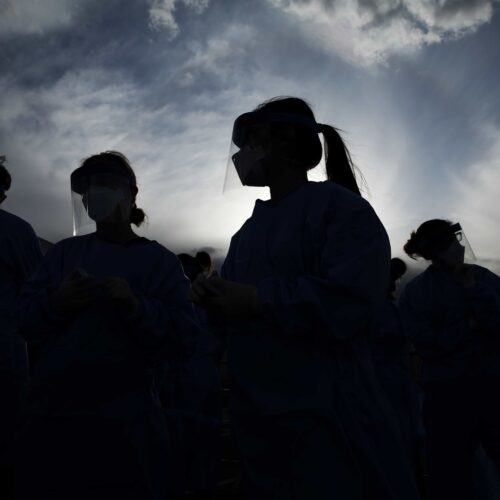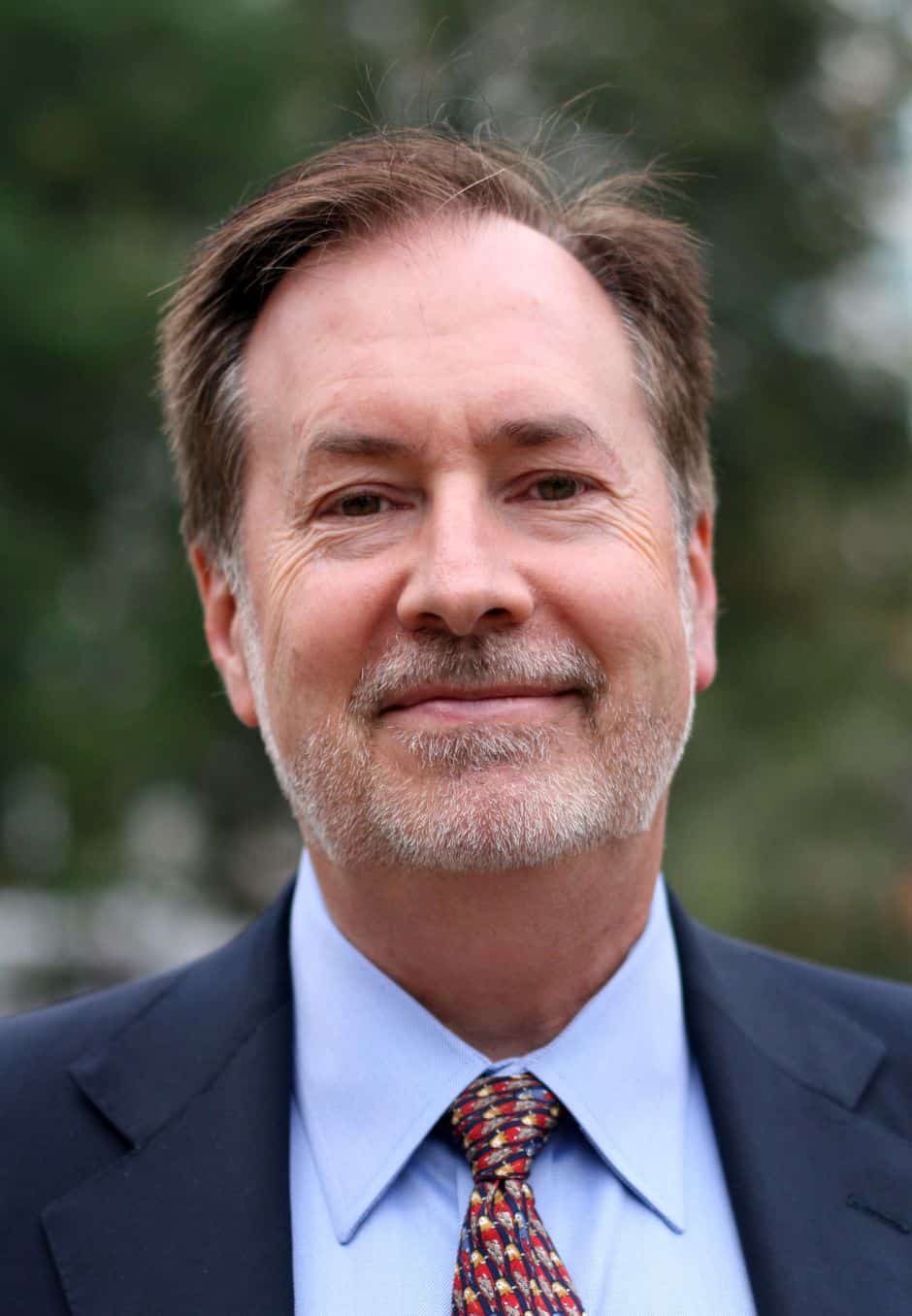Introduction
The Center for Public Integrity is a nonprofit newsroom that investigates betrayals of public trust. Sign up to receive our stories.
The attack on America that killed 2,977 people in 2001 upended the country’s economic and political priorities and provoked a surge in U.S. military spending generally estimated at more than $2 trillion over the past 19 years.
The government’s budget increase for troops, weaponry, and wars was at least double the rate of virtually any other federal effort. America’s principal national security focus, for more than a decade, was counterterrorism, and its undercurrents of stepped up personal security and increased surveillance seeped into almost every part of the nation’s conduct.
Now a new attack on America — one that’s still under way –– already has caused more than seven times as many deaths as 9/11 and eventually may cause more than 65 times as many. The immediate damage to the U.S. economy will be considerably higher — in the trillions of dollars. Congress already has agreed to spend several trillion dollars on short-term relief.
The question beginning to provoke national conversation is, will this new assault produce a similar long-term upheaval in the way that America worries about its national security, including the risks of foreign dangers and the choices it makes to quiet them?
An early sign of impending change appears in a new national survey, taken last month by the Pew Research Center and released today. It shows for the first time that more Americans consider the spread of infectious disease a major threat than they do terrorism, by 79 to 73 percent. A handful of other issues that have long worried the country and dominated the nation’s policy debate — such as climate change, the rise of China, cyberattacks, and nuclear proliferation — are now seen as important but lesser threats, according to the survey.
This opinion is now largely shared by both Democrats and Republicans, a rare circumstance in the national discourse. The gap between their views about the importance of infectious disease threats was just five percent, smaller than the gap between members of the two parties in their ranking of terrorism and considerably less than the gap in worry about climate change. Prioritization of infectious disease was particularly high among those with less income, but the same for both genders, another rare event in national conversation.
The U.S. national defense budget is $740 billion, or roughly 60 times the annual budget of the Centers for Disease Control and Prevention, the principal federal agency devoted to protecting the country against infectious disease. But the spread of COVID-19 is significantly slowing military activity around the globe according to senior defense officials, and also complicating the performance of routine military tasks that demand close social interaction, ranging from naval ship operations to training exercises.
There’s no clear consensus among Washington policymakers as yet that major changes in federal spending priorities loom. Certainly no one in the Trump administration has embraced that ambition, even though the White House has supported spending additional money now to stanch some of the immediate virus-related health problems and ameliorate some of the financial shocks caused by the virus.
But Kori Schake, who directs defense and foreign policy studies at the conservative American Enterprise Institute, suggested last week in a Council on Foreign Relations video forum that “we are going to see enormous downward pressure on defense spending because of other urgent American national needs, like health care, that the pandemic is going to raise.”
We can’t do this work without your support.
Similarly, Michèle Flournoy, a former undersecretary of defense for policy during the Obama administration and a potential future defense secretary under a Democratic president, said at a video forum arranged by the conservative Hudson Institute last month that “we are defining national security too narrowly. I mean, dealing with pandemics and safeguarding the health of the American population from a threat like this should be part of our national security thinking and rubric.”
She added, however, that “when you go to Capitol Hill, the color of money, the politics of different colors of money really matter. A vote for a defense dollar is a patriotic act. A vote for the CDC or a vote for public health hospitals in the past has not been seen as a patriotic act. Maybe this pandemic will change that, but we have got to think about public health preparedness as part of our national security going forward.”
Last week, I asked Gen. Timothy M. Ray, commander of the Air Force’s Global Strike Command, at a teleconference if he thought the COVID-19 experience might wind up pulling funds away from the planned modernization of U.S. nuclear forces. A comprehensive effort over the next decade to build new submarines, land-based missiles, and bombers to carry nuclear warheads is projected to cost nearly half a trillion dollars.
Ray, who is directly responsible for ensuring that America’s existing arsenal of warhead-carrying missiles and bombers are ready for use on a moment’s notice, said he didn’t feel comfortable forecasting “where the economy goes, where the budget goes.” But he said he’s repeatedly noted that “things don’t change significantly without a crisis. World War II, Pearl Harbor, Cuban Missile Crisis, 9/11. The question becomes … how does the world change now after COVID? I think we all agree that it probably won’t go back to a pre-COVID state.”
Read more in Health
Coronavirus and Inequality
Federal agencies are doing little about the rise in anti-Asian hate
The federal government’s response amid the coronavirus pales in comparison to actions taken during the SARS outbreak and after the 9/11 terrorist attacks.
Coronavirus and Inequality
City leaders to Trump: help us fight the coronavirus by paying your bills
Fourteen city governments say the president’s campaign now owes them a collective $1.82 million. The campaign says it’s not responsible.


Join the conversation
Show Comments